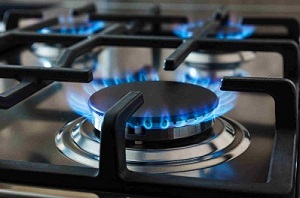do gas stoves need electricity
Gas stoves have long been a staple in kitchens around the world. They provide efficient and precise heat control, making them beloved by professional chefs and home cooks alike. One question that often arises when considering a gas stove is whether or not it requires electricity to function. In this post, we will provide a practical answer to this common query.
Gas Stove Power Requirements
Contrary to popular belief, gas stoves do require a small amount of electricity to operate certain components. While the primary source of heat is gas, electricity is needed for ignition, control mechanisms, and other essential features.

Gas stoves typically have an electric ignition system, which automatically sparks and ignites the gas when the burner is turned on. This ignition system relies on a small electric current to create a spark that ignites the gas, ensuring a quick and reliable fire every time you cook.
Additionally, gas stoves often feature electronic control panels that allow you to adjust the heat intensity and other settings. These control panels require electricity to function properly. Without electrical power, you would not be able to regulate the flame or utilize other advanced features, such as timers and programmable cooking modes.
Gas Stoves Vs. Electric Stoves

When comparing gas stoves to electric stoves, it's important to note that both types of appliances have their own unique advantages and considerations.
Gas stoves provide instant heat and excellent temperature control, allowing for precise cooking adjustments. They also tend to be more energy-efficient, as the heat is directly produced from the flames rather than generated through electric coils. Gas stoves are favored by many professional chefs for their responsiveness and high heat capabilities, making them ideal for tasks like searing and stir-frying.
On the other hand, electric stoves offer their advantages as well. They typically have a smooth, flat cooking surface, which makes them easier to clean than gas stoves with their grates and burners. Electric stoves often provide more even heat distribution across the cooking surface, which can be advantageous for certain dishes that require gentle and consistent heating.
Conclusion
In conclusion, gas stoves do require electricity to function properly. While the primary source of heat comes from gas, electrical power is needed for ignition, control mechanisms, and other essential features. Gas stoves offer excellent heat control and responsiveness, making them a top choice for professional chefs and home cooks who value precision in their cooking. However, it's important to note that both gas and electric stoves have their own unique advantages, and the choice ultimately comes down to personal preference and specific cooking needs.
Whether you opt for a gas stove or an electric one, it's crucial to ensure proper installation and maintenance to maximize safety and performance. Consulting with a professional appliance technician can help you make an informed decision and ensure your stove operates efficiently for years to come.
![Do Gas Stoves Need Electricity? [A Practical Answer For You]](https://cookshout.com/wp-content/uploads/2022/04/Gas-Stove-Vs-Electric-768x431.jpg)
![Do Gas Stoves Need Electricity? [A Practical Answer For You]](https://cookshout.com/wp-content/uploads/2022/04/Gas-Stove-1.jpg)